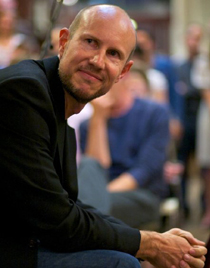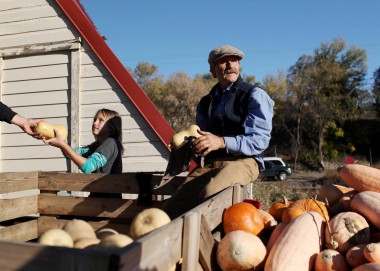Tag: Radio programs
NPR cancels Talk of the Nation, pairs with WBUR in bid to bolster middays
After more than two decades on the air, NPR’s Talk of the Nation will come to an end in June to make ...NPR drops Talk of the Nation, replaces with WBUR’s Here & Now
This item has been updated and reposted with additional information. After more than two decades on the air, NPR’s Talk of the Nation will ...Pubradio and TV audiences continue migration to digital, State of News Media study shows
Audiences for public radio and television news continue to spend less time with legacy broadcast platforms as they transition to digital listening ...Drop the stuffy presentation style for classical radio and the format will thrive
To the Editors, I read Ben Mook’s Feb. 11 piece about the de-commercialization of classical radio with a mixture of sadness and muted ...Pubradio backs musical acts at SXSW festival
Public radio will be well-represented at the musical portion of the annual South by Southwest festival in Austin, Texas, March 13–16. The ...The name needs revamping, but podcasts are here to stay
If you’re a public radio station without a plan for how to take advantage of the remarkably flexible and creative platform of ...POV and StoryCorps each receive $1 million from MacArthur Foundation
American Documentary, home to PBS’s independent film showcase POV, and StoryCorps, the oral history project heard on NPR, are each receiving $1 million ...Wits to deliver 10 new episodes this season for nationwide carriage
The fourth season of the Minnesota Public Radio-produced St. Paul variety show Wits, which piloted as an MPR-only broadcast, will be the first ...POV, StoryCorps get $1 million each from MacArthur Foundation
American Documentary, home to PBS’s independent film showcase POV, and StoryCorps, the oral history project heard on NPR, are each receiving $1 million as ...Pubradio journalist wants western Colorado to ‘See Change’
For a Localore project hosted by KVNF in Paonia, Colo., Julia Kumari Drapkin set out to invert the traditional model of science ...Wednesday forum to explore public media arts coverage
The latest in an ongoing series of Public Media Futures forums will spotlight public broadcasting’s work surrounding the arts. The Feb. 20 ...KCRW and McSweeney’s partner up for The Organist
KCRW in Santa Monica, Calif., has struck the opening chords for The Organist, a monthly arts-and-culture podcast from McSweeney’s. The program is the latest ...Delmarva Public Radio gets potential new lease on life from Salisbury University
Maryland’s Salisbury University is backing away from a consultant’s plan to farm out operations of its two Delmarva Public Radio stations. A proposal ...An upbeat trend for classical pubradio despite audience slide
The funeral dirge has been played many times for the classical music radio format, but after decades of decline on both commercial ...NPR will move production of Weekend ATC to L.A.
NPR announced today that this summer it will move production of Weekend All Things Considered to NPR West, its production center based in Culver ...






